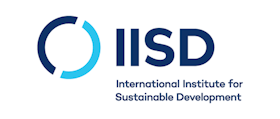Consumers and companies across the planet are increasingly choosing cotton produced in accordance with voluntary sustainability standards (VSSs) such as Better Cotton or Cotton made in Africa, according to new research from the International Institute for Sustainable Development (IISD).
“Sustainable cotton is in high demand as customers look to make responsible purchasing decisions and brands use sustainability to differentiate their products in the market,” said Vivek Voora, Senior Associate, IISD.
IISD’s new Global Market Report: Cotton Prices and Sustainability tracks how VSS-compliant cotton production has doubled every 2.5 years, on average, since 2008.
“Most of the demand is coming from Europe and North America. But awareness is rising in big developing and emerging markets that suggests the growth will continue.”
“Sustainability standards can help address the environmental and social affects linked to conventional cotton production,” said Voora. “Including water scarcity, soil and water contamination from pesticide runoff, forced labour, and poor working conditions.”
The new report includes a detailed analysis of how adhering to sustainability standards can affect cotton prices and income received by cotton farmers.
“Prices and incomes are important because many smallholder cotton farmers live below the poverty line in developing countries,” said Steffany Bermudez, Policy Analyst, IISD. “And now the pandemic and Russia-Ukraine conflict have forced these struggling farmers to cope with rising input costs, reduced yields, and unpredictable price swings.”
“Farmers in some regions can receive up to 50 per cent higher prices and 20 per cent higher crop incomes for growing VSS-compliant cotton, compared to conventional cotton,” said Bermudez.
The research shows these higher prices and incomes come from the increased crop quality and cost-efficient practices associated with VSS-compliance. However, minimum price levels used by some VSSs have been ineffective, as they are often set below international market prices and government-set prices. “Standards-setting bodies need to implement or update their minimum prices to reflect the market reality and fairly compensate farmers,” said Bermudez.
Quick facts
- VSS-compliant cotton production experienced a 39 per cent to 40 per cent compound annual growth rate between 2008 and 2019. The pace slowed to between 28 per cent and 29 per cent from 2014 to 2019.
- In 2019, about 92 per cent of VSS-compliant cotton came from Asia, led by India, China, and Turkey. Africa produced about 4 per cent, mainly in Tanzania, Uganda, and Benin.
- The top standards, by 2019 production volume are Better Cotton, Cotton made in Africa, Organic, and Fairtrade
- Top cotton brands and companies reported that 85 per cent, or 720,000 tonnes, of their cotton was more sustainably sourced (VSS-compliant, in transition, or recycled) in 2020, up 300,000 tonnes from 2017
- Farmers can receive up to 50 per cent higher prices and 20 per cent higher crop incomes for VSS-compliant cotton compared to those selling conventional cotton, due to the increased quality and cost-efficient practices associated with compliance
- Minimum prices and premiums associated with VSSs are still set below price levels in international markets or set by governments of producing countries
IISD’s new report Global Market Report: Cotton Prices and Sustainability also includes detailed recommendations for actors along the value chain to improve sustainability in the cotton sector and support farmers’ prices and incomes.
About the Sustainable Commodities Marketplace Series
This report is part of the Sustainable Commodities Marketplace Series of global market reports that analyze agricultural commodities to foster transparency, knowledge, and strategic decision-making for sustainable development.
The series covers bananas, cotton, cocoa, coffee, palm oil, soybeans, sugar, and tea. The series is published by IISD’s State of Sustainability Initiatives (SSI), advancing inclusive value chains by providing credible and solutions-oriented research, dialogue, and strategic advice for decision-makers about voluntary sustainability standards and other supportive initiatives.
About the International Institute for Sustainable Development
The International Institute for Sustainable Development (IISD) is an award-winning independent think tank working to accelerate solutions for a stable climate, sustainable resource management, and fair economies. Our work inspires better decisions and sparks meaningful action to help people and the planet thrive.
We shine a light on what can be achieved when governments, businesses, non-profits, and communities come together. IISD’s staff of more than 120 people, plus over 150 associates and consultants, come from across the globe and from many disciplines. With offices in Winnipeg, Geneva, Ottawa, and Toronto, our work affects lives in nearly 100 countries.
Publish your content with EB Premium
It's not about how many you reach. It's about who. Get your news, events, jobs and thought leadership seen by those who matter to you.


















